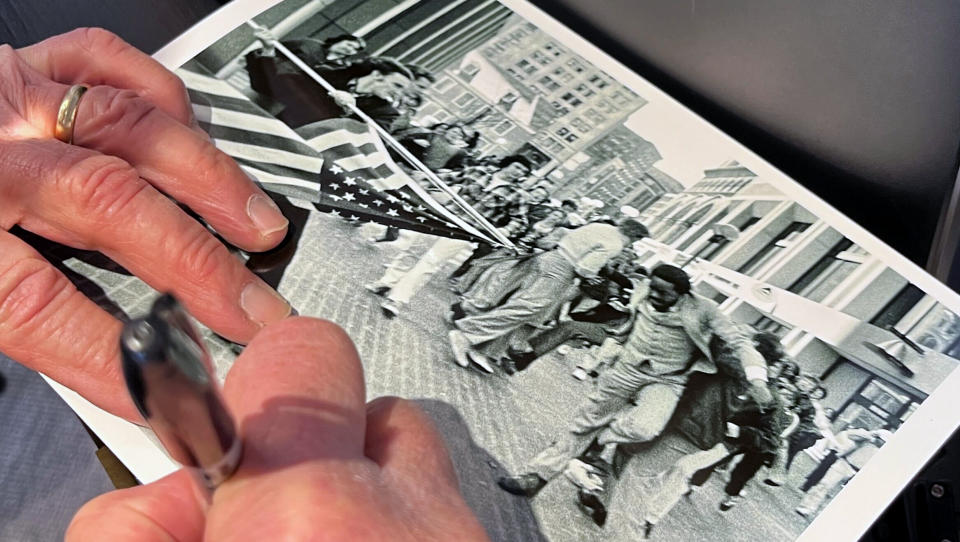Fifty years after Boston’s court-ordered busing plan was implemented to desegregate the city’s public schools, Boston continues to grapple with the fallout of the controversial decision.
For Kim Janey, the city’s first Black and first female mayor, the repercussions of the busing program were personal.
“My parents kept me home for the first couple of weeks. They did not agree with the [Judge W. Arthur] Garrity decision. They did not want to bus me outside of my neighborhood,” Janey recalled on Boston Public Radio on Wednesday.
“I remember the distorted faces of the people in the mobs. I remember the police escorts. I remember having to sometimes leave out the back door of school to avoid some sort of riot in the streets,” she said.
Similarly, NAACP board member Michael Curry recalled his own experience being bused to Charlestown at the age of 7. He vividly recalled the angry crowds, and the fear he felt.
“I remember having to duck down. I remember peeking out the window and seeing what appeared to be hundreds of people lining the streets as we made that journey over to Charlestown,” he said.
Experts and community leaders are calling for a reevaluation of Boston’s approach to desegregation.
Ted Landsmark, who was
famously photographed being attacked during a busing protest
, said it’s time to
echoed this sentiment. He now serves on Boston’s Reparations Task Force, investigating the city’s ties to systemic racism.
Distinguished Professor of Public Policy and Urban Affairs at Northeastern University,
“I think we’re now at a point where we can really take a hard look at what busing was intended to do, what it has actually accomplished and what it is we need going forward, which I would suggest involves getting rid of busing as it currently stands and reinvesting those funds in quality schools in the neighborhoods,” Landsmark said.
Janey and Curry emphasized the need for resources that address systemic issues rather than merely relocating students. Janey advocated for “a curriculum that reflects the diverse student body of the kids, quality teachers, [and] involvement in the decisions of hiring superintendents.”
“It’s 50 years now that we are marking this anniversary. But this fight is centuries old in terms of Black parents seeking better education for their kids,” Janey added.
After the 1974-75 school year, nearly 30,000 students left Boston Public Schools . In recent years, the district has continued to lose Black students. Recent data reveals that almost 15,000 Black students have exited the system since 2002.





